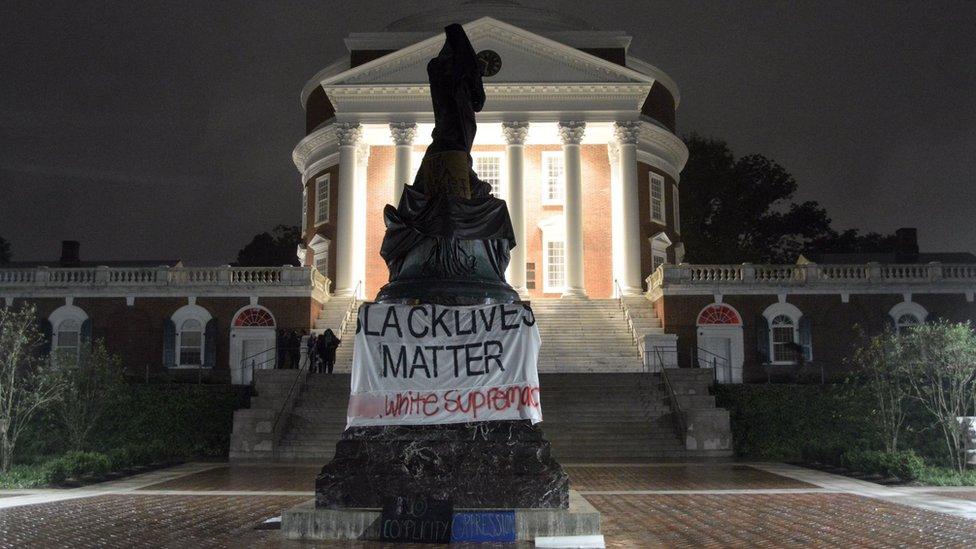Bristol: Colston's toppling sparked 'vital' debate in US
- Published
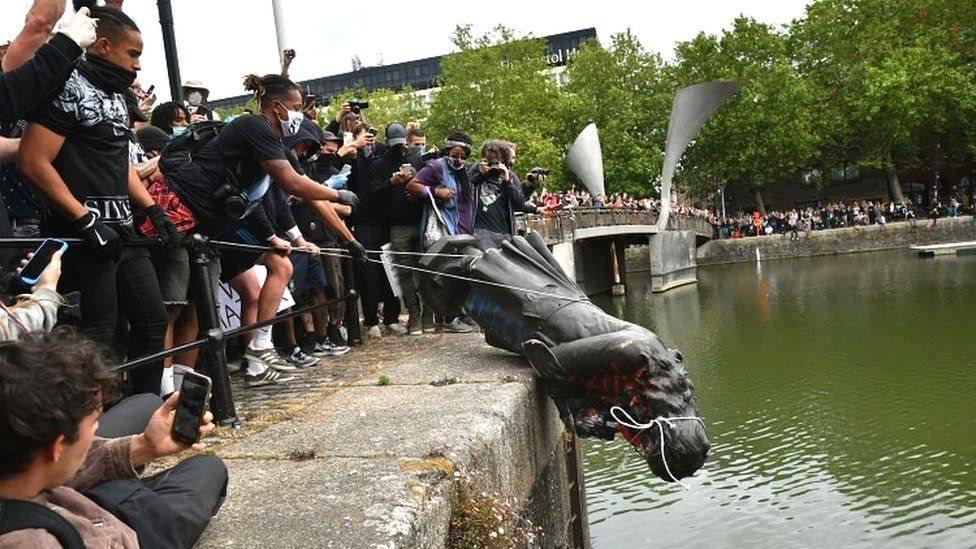
The statue's removal led to a "vital" debate about statutes of historical figure, Ms Hyman claimed
The toppling of the Edward Colston statue led to a debate about monuments in the US, a prominent Democrat has claimed.
Media commentator Kelly Hyman said the removal of the 17th Century slave trader memorial in Bristol was "closely watched" in the US.
Then-President Donald Trump's condemnation only intensified the debate, she claimed.
"We needed to have these discussions," added Ms Hyman.
The Colston statue was pulled down and thrown into Bristol Harbour during a Black Lives Matter march on 7 June, 2020.
In the following months, several institutions in the city with Colston in their title changed their names.
'Honouring our heritage'
"What happened in Bristol became a political issue in the states too," Ms Hyman, who is also an attorney, told BBC Bristol.
"[Mr] Trump came down and promised to protect the statues. He said we shouldn't be tearing these down because they are honouring our heritage.
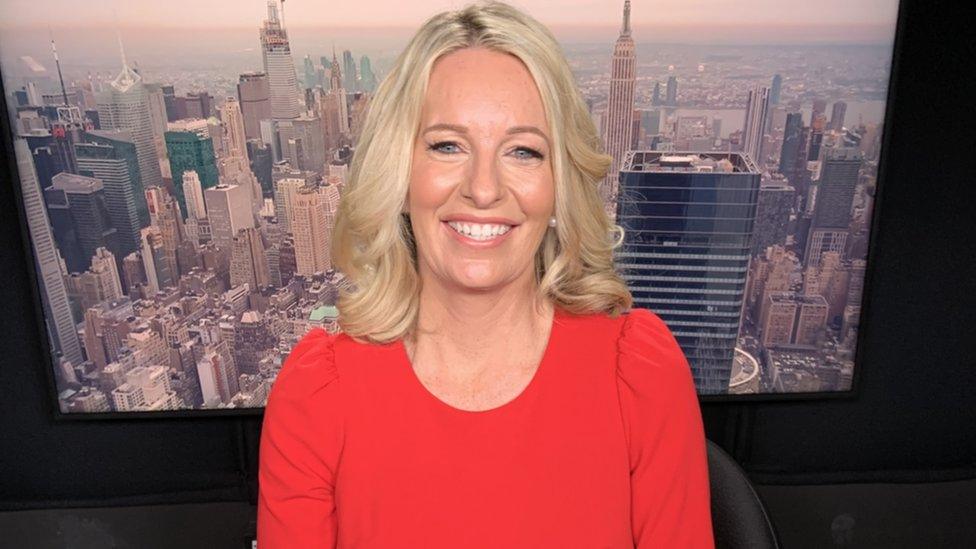
US Democrat Kelly Hyman said she believed statues of people "who suppressed minorities" were not welcome
"In the US there's a whole argument about free speech.
"But there's also an argument about whether they [statues] truly represent the people.
"I don't believe that we should have statues of people who suppressed minorities. That don't represent what a true democracy is."
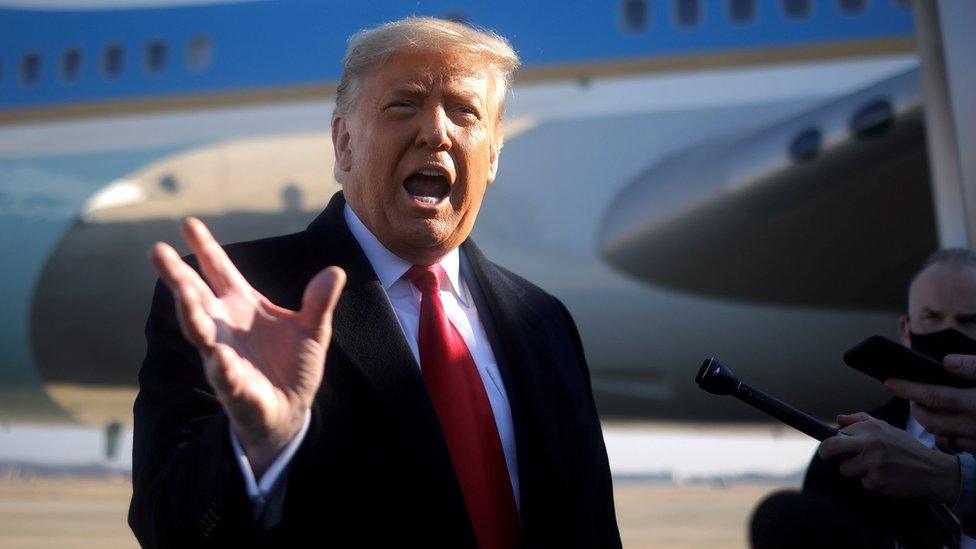
The former US President, Donald Trump, reacted to the removal of the Colston statue by saying similar actions in the US would lead to criminal charges
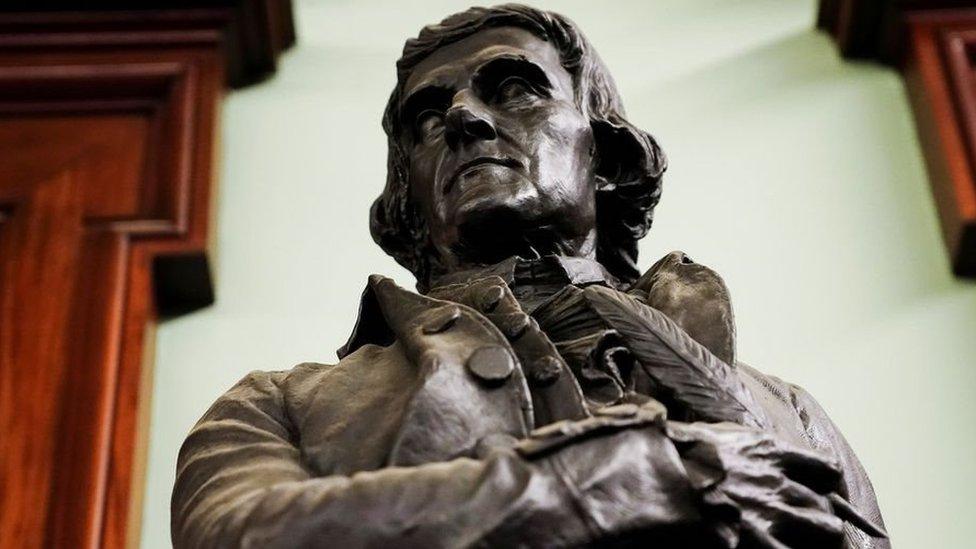
The statue of Thomas Jefferson will be removed from the New York Council chamber following a public consultation
As news of the Colston statue's removal went around the world, Mr Trump tweeted that anyone who "vandalises or destroys any monument, statue or other such federal property" would be arrested and jailed for up to 10 years.
This warning did not stop the issue snowballing - with numerous statues removed or defaced in the following months.
'Slavery runs deep'
While many of the initial removals focused on American Civil War Confederate figures who supported slavery, emphasis has since shifted to others.
In October it was announced that a statue of former president Thomas Jefferson - one of America's founding fathers but also a slave owner - would come down in New York following a public consultation.
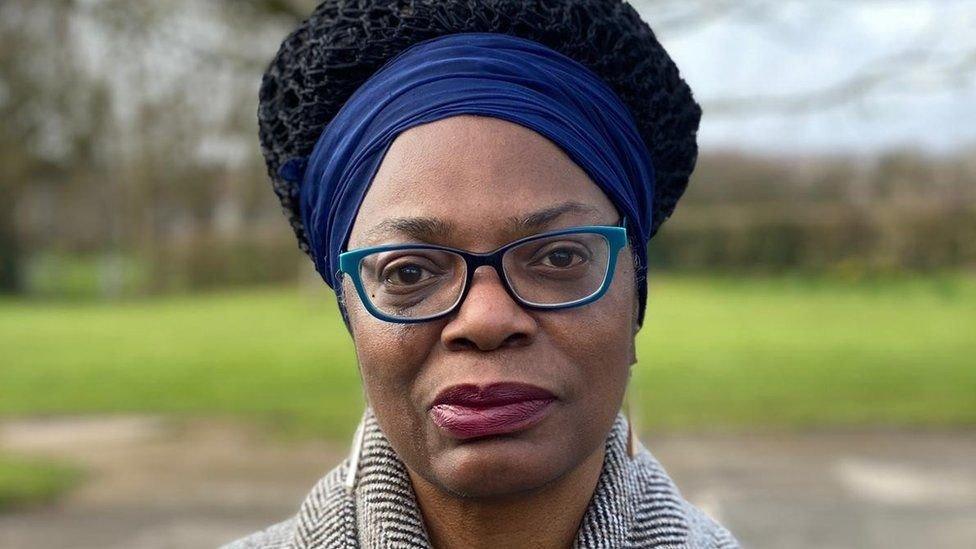
Bristol Labour Councillor Asher Craig said the impact of slavery "runs deep"
Bristol's deputy mayor Asher Craig is responsible for equalities at the city council.
She told BBC Bristol that the toppling of the Colston statue was a "watershed moment" which "sparked a lot of conversations both in Bristol and all over the world".
"It has impacted people in ways we never thought would happen," she said.
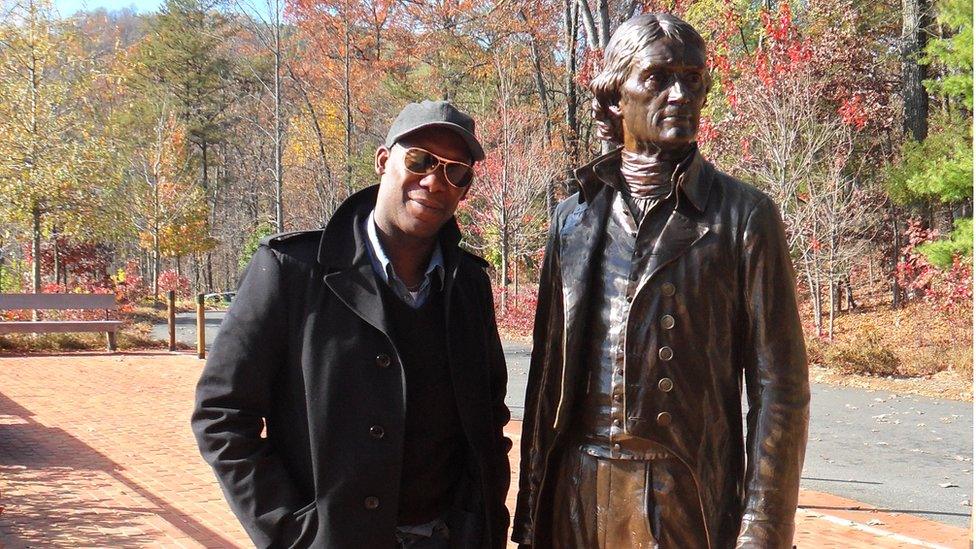
Roger Griffth standing next to a statue of Thomas Jefferson in Virginia
"The statue was just the spark about a much deeper conversation about the impact slavery and racism has had not just here but across the world," she said.
"You have to remember what slavery does - it disenfranchises people.
"I have no idea where I come from. I can trace myself back to slave owners.
"The impact of slavery runs deep in society. People need to own up and listen to what we are saying."
'Long overdue'
Roger Griffith MBE is a social historian and an expert on race equality.
He said that society should not glorify people with "blood on their hands".
The removal of the Colston statue was "100% long overdue" he added, and was part of "revisionist" history which only focuses on positive legacies.
Mr Griffith has called for a debate about historical figures ranging from Winston Churchill to Malcom X.
"Let's look at things and not make people saints," he said.

Follow BBC West on Facebook, external, Twitter, external and Instagram, external. Send your story ideas to: bristol@bbc.co.uk , external
Related topics
- Published25 June 2020
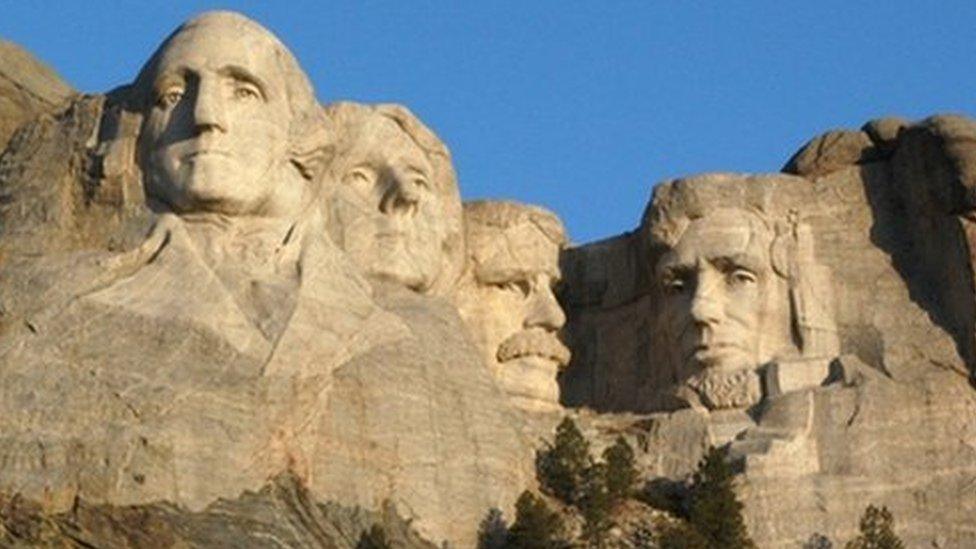
- Published13 June 2020
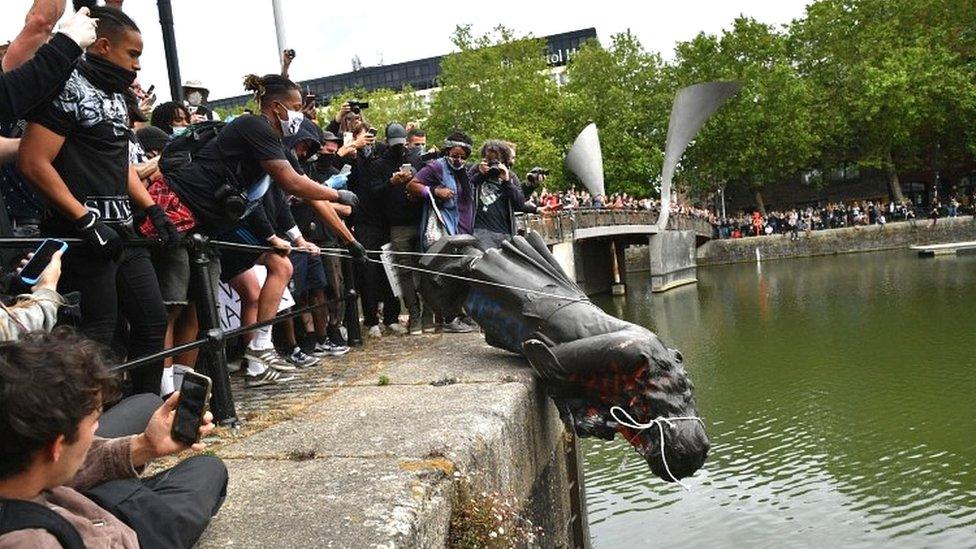
- Published10 June 2021
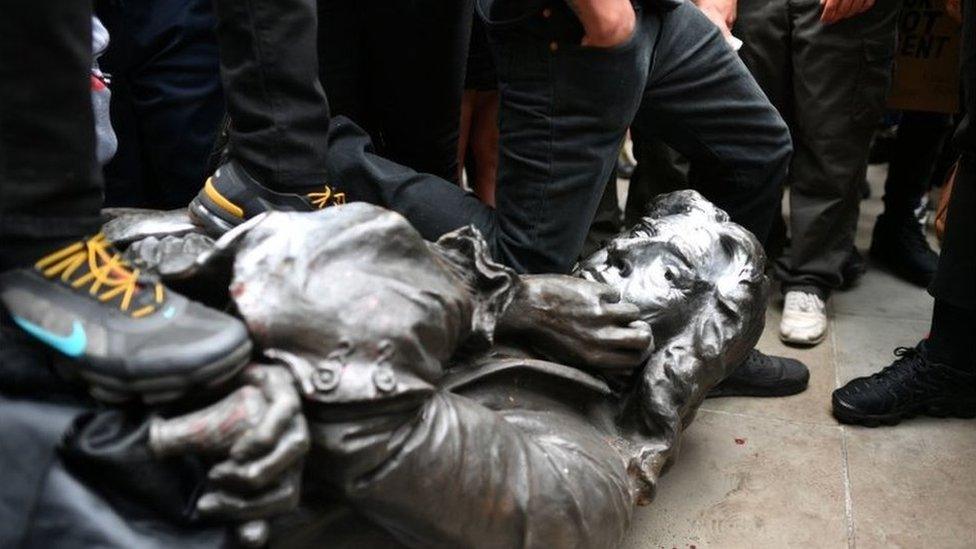
- Published13 September 2017
